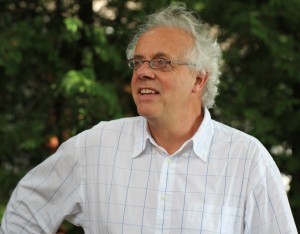 Although it may seem harsh, I believe that scientists should be held to a higher standard of honesty than the average person. The consequence is that they will be punished more severely for dishonesty—for example, by being banned from research for life.
Although it may seem harsh, I believe that scientists should be held to a higher standard of honesty than the average person. The consequence is that they will be punished more severely for dishonesty—for example, by being banned from research for life.
The main reason for this is that science depends wholly on trust. If, for example, The BMJ receives a paper describing a trial in 200 patients, the editors don’t ask to see pictures, signatures, records, and consent forms from the 200 patients. They trust that there were 200 patients in the study, and that the researchers did what they said they did and reported the outcomes honestly. Ideally, the researchers will also recognise the limitations of their studies, although often they don’t, but at least if everything is reported honestly then the editors and readers can see the limitations for themselves.
Casinos are examples of institutions where nobody is trusted. Everything is recorded. Everybody is monitored. Everything must be signed for and countersigned. Everybody is suspected indefinitely. Nobody is trusted, and surveillance and control systems are elaborate and constantly evolving. Casinos work on the assumption that everybody is trying to cheat them and that they will try to find ways to circumvent systems of surveillance and control.
It’s impossible to imagine that science could be done within systems like those of casinos. Scientists must keep careful records and be scrupulous with gathering and storing their data, but they have ultimately to be trusted. This is the main reason why scientists must be punished more severely—to the point of being banned from research—when found to be dishonest.
Another reason is that science requires behaviour that is inhuman. The true scientist (if there is such a person) will be delighted when his or her favourite hypothesis is slayed by data. But this is a very inhuman way to be. Scientists’ theories and hypotheses, perhaps built up and cherished over a lifetime, are like their children. They love them. Plus their theories may be the basis of their reputation and honours. So how can they be delighted when the data destroy their theories? The temptation to ignore, undermine, or even falsify the offending data is huge. Only those with the highest levels of honesty can accept, let alone be delighted, when data destroy their theories.
The rewards of science are huge—not the honours, prizes, and praise of colleagues, these are baubles—but rather the never ending search that means you never become bored or cynical. As with artists, scientists want to continue the search until they die. So this richness and joy must be matched with being held to a higher standard of honesty than the average person.
Richard Smith was the editor of The BMJ until 2004. He is now chair of the board of trustees of icddr,b [formerly International Centre for Diarrhoeal Disease Research, Bangladesh], and chair of the board of Patients Know Best. He is also a trustee of C3 Collaborating for Health.
